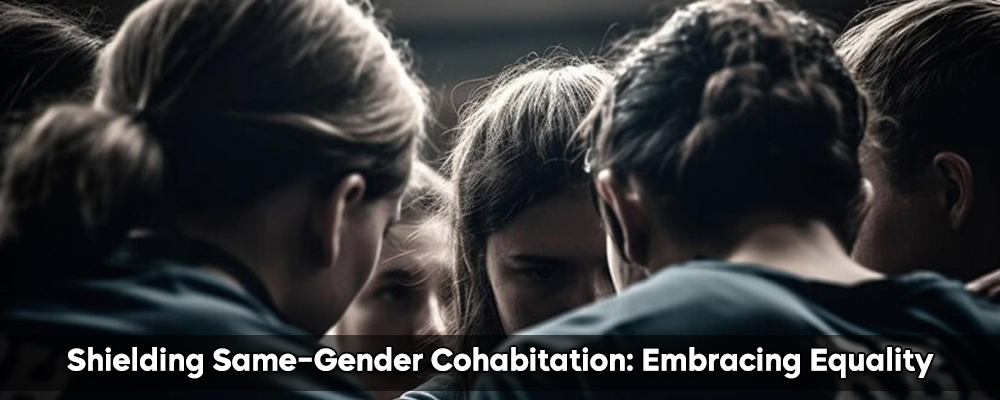Relationships and partnerships of all kinds have recently come to be respected and acknowledged. The growing recognition of same-gender couples deciding to live together is one such important transition. As public opinions have altered, legal challenges have also come to the forefront. The question of whether cohabiting people of the same gender are protected under Article 21 of the Indian Constitution, which guarantees the right to life and personal liberty, has come up.
Need A Legal Advice
The internet is not a lawyer and neither are you. Talk to a real lawyer about your legal issue

Article 21 of the Indian Constitution
The Indian Constitution states in Article 21 that “No person shall be deprived of his life or personal liberty except pursuant to the procedure established by law.” This fundamental right safeguards people’s basic liberties and the right to live honorably. Courts have expanded their understanding of Article 21 over time to cover a wide range of rights necessary for a fulfilling life. These liberties include the freedom to lead a life consistent with one’s distinct identity, privacy rights, and the right to choose one’s partner.
Right to choose one’s Partner under Article 21
The right to choose one’s partner is one of the fundamental rights emphasized under Article 21 of the Indian Constitution. Sexual orientation or gender have no bearing on this right. The Supreme Court of India recognized the intrinsic dignity of every person in its landmark decision in the case of Navtej Singh Johar v. Union of India, which also decriminalized consensual gay conduct. In recognizing the rights of the LGBTQ+ community population, particularly their ability to establish relationships of their choosing, this ruling was a significant step.
Extending Article 21 to Cohabitation of the Same Gender
The question of whether Article 21 extends to safeguard same-gender people’s right to live together in a consenting and committed relationship arises when they choose to do so. Critics contend that Article 21 does not specifically address the complexities of interpersonal relationships and is more concerned with safeguarding people from arbitrary state action. Legal analysis suggests the opposite, though. Since society’s standards and our comprehension of human rights are always developing, Article 21’s meaning also changes.
Role of Judiciary: Punjab and Haryana High Court
- In the case of Pooja and Anr v. State of Punjab and Ors., the two young adult females who expressed their love for one another and have been living together in a live-in relationship for the past four years requested protection from the State by evoking their fundamental rights to life guaranteed by Article 21 of the Constitution.
- The decision made by the Punjab and Haryana HC is significant. In this case, the court’s ruling made it quite obvious that gender or orientation of sexuality has no influence on an individual’s right to life and freedom, which Article 21 provides. By approving same-gender unions, the court takes an important step toward acknowledging the fundamental rights and dignity of LGBTQ+ people.
Outcomes in the Society
- The Punjab and Haryana HC’s ruling has broad implications that go beyond the legal field. It has the potential to change how society views interactions between people of different genders. The decision, which upholds the legality of same-gender relationships, creates a forum for discussion and education, dispelling long-held stereotypes and promoting acceptance.
- The decision of the Punjab and Haryana High Court represents a big step forward towards equality. It might be difficult to implement and enforce this ruling given the wide range of societal standards present in India’s several states. Additionally, a concerted effort is required to maintain their protection because LGBTQ+ rights are the object of some social hatred and continuous legal problems.
Conclusion
As society’s understanding of relationships grows, legal structures must adapt to provide all forms of partnerships with an equal level of protection and respect. In this sense, the persistence and advancement of the Indian legal system can be seen in the application of Article 21 to same-gender cohabitation.
One can talk to lawyer at Lead India for any type of legal assistance. In India, free legal advice online is available at Lead India. Along with obtaining free legal advice online, you can also ask questions to the experts online for free at Lead India.





 Talk to a Lawyer
Talk to a Lawyer